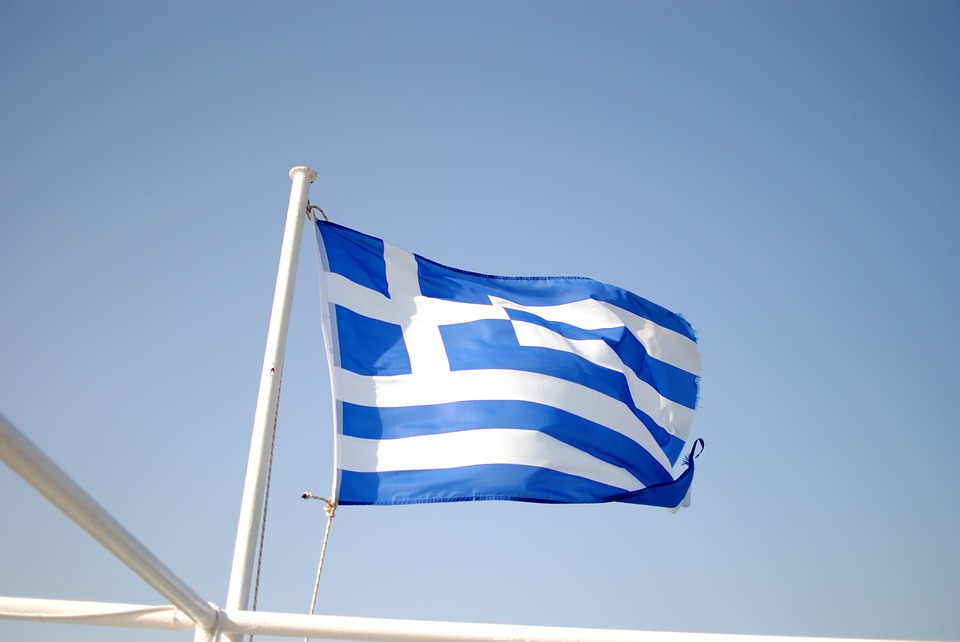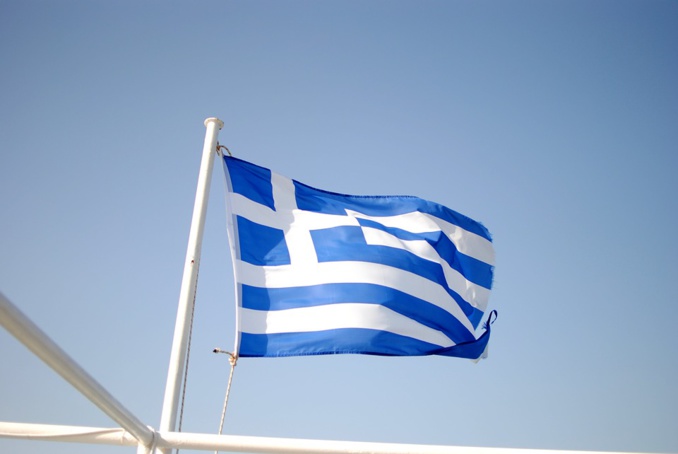The situation in Greece itself is also quite favorable for the return to financial markets. The Greek economy, for example, is setting an optimistic mood for five consecutive quarters.
According to Elstat, the Statistical Office of Greece, the economy grew in January-March 2018 by 2.3% compared with the same period last year. This is the highest rate in the last ten years. 2.3% are very good figures for Europe as a whole, even taking into account the very low base of the Greek economy, which had fallen much in the first half of the tenths. It is also noteworthy that the growth of the Greek economy is accelerating. In the last quarter of 2017 it was three times weaker and amounted to 0.8%.
Export grew by 9.5%, while imports decreased by 2.7%. According to Elstat, the gross accumulation of fixed capital decreased by 8.3%.
"We see evidence that the economy is moving in the direction of growth," Nikos Vettos, director of the IOVE Institute, told the Financial Times, "But it has not yet become a solid and stable trend. Export-oriented companies are showing the best performance now. As for consumption, it is still in a state of stagnation. There was also an unexpected decrease in investment volumes."
The Alexis Tsipras government is currently negotiating with investors to withdraw from the bailout program. It is expected that the parliament will approve the final package of administrative and financial-economic reforms next week. By the way, one of the most unpleasant for ordinary Greeks measures - another reduction in spending - provoked a nationwide 24-hour strike last week.
Greece has long been the weakest link in the euro zone and is therefore very vulnerable to external threats and problems. Speaking before the Greek businessmen last week, Alexis Tsipras warned that the crisis in Italy could negatively affect not only interest rates on Greek government bonds, but also have an impact on negotiations aimed at easing the debt burden of Greece. The debt amounts to $320 billion dollars, which is impressive for such a small country.
"It is a mistake to think that in August, when the assistance program ends, everyone line up with the intention of offering us bets similar to, say, German," the head of government said.
In September 2019, Greece is expected to hold parliamentary elections. Alexis Tsipras, whose popularity has decreased significantly, intends to focus on a "clean" exit from the bailout program during his the election campaign. At that, views of the government and the Bank of Greece, the main bank of Greece, are different. Prime Minister Tsipras with his ministers wants a full return to the markets of government bonds in September. In turn, bankers adhere to a more cautious approach and insist on a gradual return. They want to agree with creditors about another, preventive, so to speak, assistance program, which, in their opinion, will be needed if international investors treat the Greek state bonds with distrust and refuse to buy them. The government is flatly refusing the fourth line of credit.
source: ft.com
According to Elstat, the Statistical Office of Greece, the economy grew in January-March 2018 by 2.3% compared with the same period last year. This is the highest rate in the last ten years. 2.3% are very good figures for Europe as a whole, even taking into account the very low base of the Greek economy, which had fallen much in the first half of the tenths. It is also noteworthy that the growth of the Greek economy is accelerating. In the last quarter of 2017 it was three times weaker and amounted to 0.8%.
Export grew by 9.5%, while imports decreased by 2.7%. According to Elstat, the gross accumulation of fixed capital decreased by 8.3%.
"We see evidence that the economy is moving in the direction of growth," Nikos Vettos, director of the IOVE Institute, told the Financial Times, "But it has not yet become a solid and stable trend. Export-oriented companies are showing the best performance now. As for consumption, it is still in a state of stagnation. There was also an unexpected decrease in investment volumes."
The Alexis Tsipras government is currently negotiating with investors to withdraw from the bailout program. It is expected that the parliament will approve the final package of administrative and financial-economic reforms next week. By the way, one of the most unpleasant for ordinary Greeks measures - another reduction in spending - provoked a nationwide 24-hour strike last week.
Greece has long been the weakest link in the euro zone and is therefore very vulnerable to external threats and problems. Speaking before the Greek businessmen last week, Alexis Tsipras warned that the crisis in Italy could negatively affect not only interest rates on Greek government bonds, but also have an impact on negotiations aimed at easing the debt burden of Greece. The debt amounts to $320 billion dollars, which is impressive for such a small country.
"It is a mistake to think that in August, when the assistance program ends, everyone line up with the intention of offering us bets similar to, say, German," the head of government said.
In September 2019, Greece is expected to hold parliamentary elections. Alexis Tsipras, whose popularity has decreased significantly, intends to focus on a "clean" exit from the bailout program during his the election campaign. At that, views of the government and the Bank of Greece, the main bank of Greece, are different. Prime Minister Tsipras with his ministers wants a full return to the markets of government bonds in September. In turn, bankers adhere to a more cautious approach and insist on a gradual return. They want to agree with creditors about another, preventive, so to speak, assistance program, which, in their opinion, will be needed if international investors treat the Greek state bonds with distrust and refuse to buy them. The government is flatly refusing the fourth line of credit.
source: ft.com



















